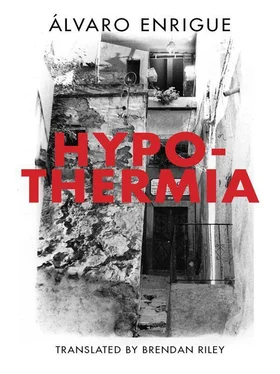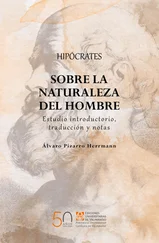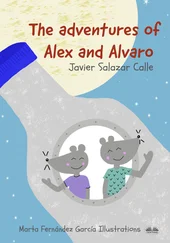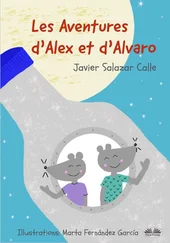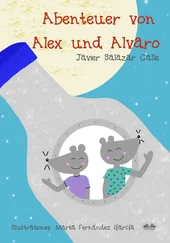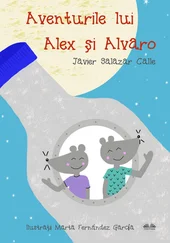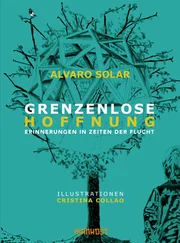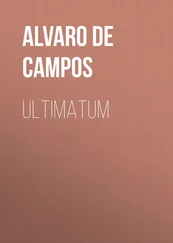He lifted the hand he’d just used to wipe his eyes and said: Hey. Then he asked Rob how he was doing. Good, he answered him, what’re you doing. I’m planting flowers. Each one waited for the other to say something else that had not yet occurred to their heat-addled brains. What kind are they, Rob finally asked. Impatiens, he replied, because that’s what belenes are called in English. As it was obvious that his neighbor wasn’t going to move from the spot until he got what he wanted, he asked what he could do for him. Can I borrow your mower? Help yourself. You know where it is. He turned his attention back to the soil, the flowers, and the slightly ridiculous trowel he was using to plant them.
He had always been a somewhat self-absorbed person, which is why he enjoyed the garden; during the time he spent working there he could forget about the ferocious competition at the office, the needs of his little girls, and the identity problems that so unsettled him, and which he didn’t exactly understand. But since he had begun to lead a double life — maybe he had always done so, but without any palpable proof of its existence — he tried to practice as many solitary activities as possible: he spent more time swimming, tending his plants, watching TV.
What were you thinking so hard about, said Rob as he came back, pushing the lawnmower along the little tiled path that led from the garden to the street. I was thinking how the suburbs are the antidote we gringos whipped up for slavery. The other man thought about this for a moment then chose a noncommittal answer: You’re not a gringo, he said. I am now, was the reply. Did you apply for citizenship? Yeah. And they gave it to you. Uh-huh. You swore on the flag and all that? Along with about four hundred Koreans. Congratulations. That’s nice. I’ll bring the mower back in a while. There’s no hurry, I’m not cutting the grass today.
He waited until his neighbor had moved on before going into his house so that he wouldn’t have to invite him in, and then he ran to the kitchen. The soft gust from the air-conditioning felt like a blessing. He was home alone — his wife and daughters had gone to a children’s party and wouldn’t return until the afternoon — so he slipped the cell phone out from his briefcase by the front door where it had been sitting since Friday evening when he got home from the Bank. He punched in the number he had decided not to store in its memory to avoid uncomfortable questions if his wife happened to find it. The answering machine took the call; as usual, she had her phone switched off whenever her husband was around. He didn’t leave a message. He cracked open a beer and stood sipping it, staring out the window: the whole world outside wilting from the heat and him watching it like it was something on TV. He decided he couldn’t stand another brush with reality, so he made himself a sandwich, then ate it, with a second beer, while watching baseball.
It wasn’t until several weeks later that Rob reminded him about the suburbs and slavery. They were in the park, eating roast chicken at the picnic that the neighborhood school’s parents association had organized to celebrate the start of the new school year. As always, the early September heat made it impossible to think clearly, and so killed any appetite for conversation he might otherwise have had. Each picnicker balanced a paper plate and plastic cup in one hand while trying to eat with the other.
What you said about slavery and the suburbs seems like a generalization to me, Rob said to him. At first he didn’t understand what he was talking about; when his neighbor reminded him about the day he’d borrowed the lawnmower he tried to explain himself: It just seemed to me that white people have taken refuge in the outskirts of the cities to build themselves a world where there’s no difference between themselves and the descendants of the people they kidnapped in Africa to work for them for free. In the suburbs, everything is sweet, middle class, and homogenous. Out here the original sin of slavery doesn’t count; every little white house with its yard is an Ark of the Covenant. Rob put down his chicken leg on the paper plate and wiped his mouth on the sleeve of his T-shirt. He said: Although you’re an American now, your grandparents weren’t slave owners, mine weren’t either; they were Quakers, from Pennsylvania; I moved to the suburbs because the public schools are good and I couldn’t afford the tuition for a private school in the city. He shrugged his shoulders and thought that despite what everybody else thinks, gringos aren’t so simple: they prefer never to commit themselves to any particular position. He told himself, as he did whenever he was having a hard time at the Bank: The essential thing for surviving in this country is to never say what you’re thinking and then do whatever it is you feel like doing. He decided to act accordingly, so he held up his chicken breast and asked Rob what he thought about how the Orioles were doing. I’m not done yet, his neighbor told him: The other thing is, you’re not white. Yes, I’m white. No, you’re not. And you aren’t black. You’re Latino. I’m Mexican. Not anymore. You’re Latino now. Slavery is none of your business and you’ve got nothing to say about it.
I was born in Ciudad Satélite, a suburb of Mexico City, which doesn’t in the least resemble what you folks call suburbia: for one thing, it’s highly urbanized, and it actually has fewer trees than you find in the capital.
Although the continuity between Mexico City— el Distrito Federal —and Ciudad Satélite is never interrupted geographically, the two areas are completely different, because Satélite, like Washington, D.C., is a preplanned community, one designed with vaguely utopian ambitions, the product of a shady real estate deal.
Of course it is. Read your American history: having retired to his Virginia plantation, General Washington decided to resolve the dispute over where to build the capital, placing it next to the village of Georgetown, in Maryland, where his brother-in-law had a swamp for sale. He bought it for a song and sold it for a fortune to the federal government, which was then headed by his soul mate, President Jefferson. Then the two bastards, quite proud of themselves, their pockets stuffed with dollars, went to see John Adams inaugurated in the brand new city that, on top of it all, was named after the general. Well, that would even make them blush in Ciudad Satélite.
Anyway, I was born and raised in Ciudad Satélite. I went to school there, my girlfriends were from there; that’s where I shopped at the supermarket and went to the movies.
Mexico City, which I didn’t start to get to know until I went to university, always seemed wild, complicated, and snobbish to me, so I never suffered the excessive identification with my native soil that residents of the capital have. I visited Disneyland for the first time when I was six years old, and when my father’s business was going well we took trips to Brownsville where we bought everything we had in our house. I never owned one single LP with songs in Spanish — in Ciudad Satélite listening to Mexican music was for servants — and I didn’t know until I was twenty years old that there were movies in other languages than English; at the neighborhood video store the Mexican movies were catalogued in the Foreign Films section, alongside ones by Fellini or Kurosawa. I spent fifth grade as an exchange student at a school in New Orleans, and my MBA is recognized by Harvard but not by the Universidad Nacional in Mexico.
The United States was always familiar territory for me and I always thought it was a place very similar to Mexico, except better. Even so, when, as an adult, I moved to Atlanta for my brand new job at AT&T, I had the impression that I’d moved to China or Romania; that’s how little I really understood my new environment. I never got used to life in Georgia. So, as soon as I could, I found a job at the World Bank and moved to Washington, D.C. I’d been told that the East Coast is a little more traditional and laid back, more like Mexico.
Читать дальше
